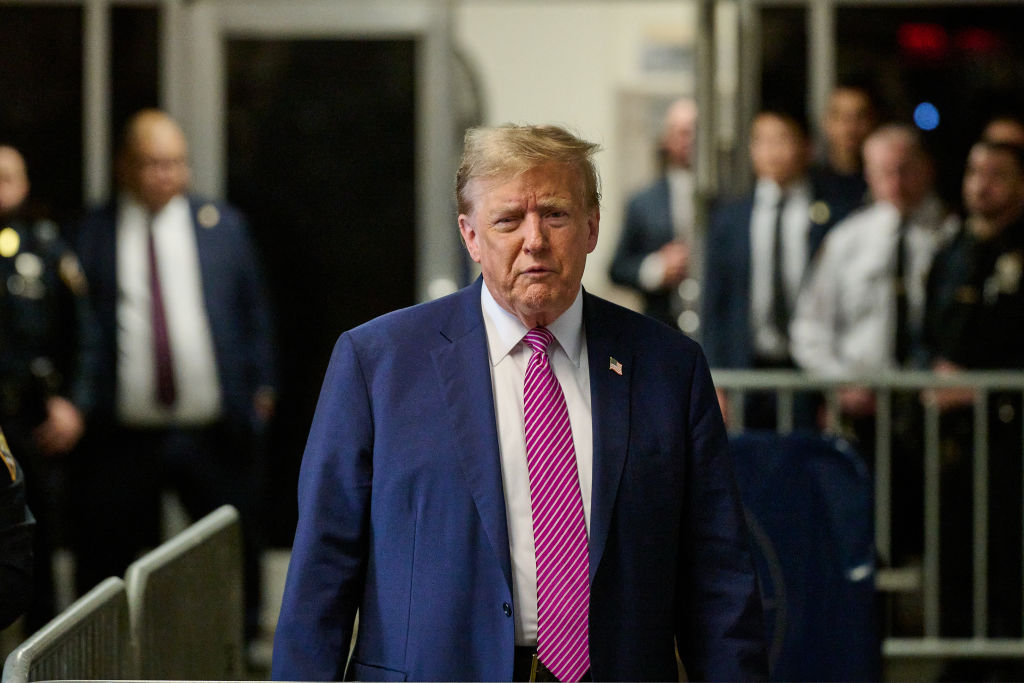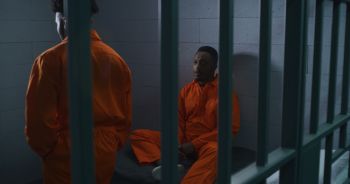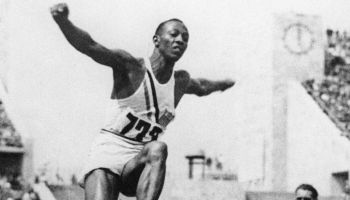While reading a Dwyane Wade interview (a Kevin Clark/TUD exclusive), I came across a response of his that took me for a loop in considering this year’s election. Besides its potentially paradigm-shifting outcome for our country’s economic policies, foreign relations and storefront issues, we will view it as a referendum on race relations, with history penning the most improbable storyline of all. Wade, who plays for the Miami Heat, and whose status as an NBA player with million-dollar backing to attend to, did not shy away from Clark’s direct Barack Obama question:
DW: Wooooowww…. One thing about Obama is that he has his own style… and that’s what we love. He’s not the typical presidential candidate. Anyone else who’s been in office before him knows that. He’s not afraid to showcase his style. He loves to play basketball. He hoops and that’s how he stays in shape. He doesn’t run on a treadmill. You can go on and on about the arguments of policy and experience, but at the end of the day, hopefully he becomes our president. We’ll all be better for it.
Aside from Wade’s political bent here, his emotion surrounding the Chicago Senator is palpable in all regards. He mentions that Barack “hoops” and, by extension, is unafraid. Barack Obama’s love of basketball has provided both a revealing and disturbing note about the Election. Basketball is an American sport that Blacks have claimed. Its global significance makes it all the more popular, but it has been essentially stylized and developed on hard courts in the Black Metropolis. What makes Barack unashamed (to Wade at least) is his embrace of an activity that is culturally black, and potentially a dynamite stick in his run for the highest office. Mr. Obama has long repeated (or implied) the refrain that he cannot run as The Black President. And in a country where Blacks are only a part of the population, this notion of being omni-representative holds some water. However, the realities of race have not disappeared.
| The Player | The Role | What Voters Fear | What Voters Want |
|---|---|---|---|
| Barack Obama | Post-racial messiah figure | A black man with militant ties, an elitist, a closet Muslim | A plain-talking common man, an abstract signifier of change, the postmodern MLK |
| John McCain | A Good Ol’ Fightin’ War Hero | A crazed geriatric on the brink of cancerous death, A war mongering temper monster, the onset of Alzheimer’s in his first term | A heroic war veteran who won’t bow to his party ties, A reform candidate with honest ways, Another white all-American macho man |
| Sarah Palin | The Hockey Mom who wears lipstick | A gun-toting rube with chip on her shoulder, A small-town mayor with Big Country Dreams, An underqualified candidate who will take over if McCain meets his Maker | A gun-toting mom with a chip on her shoulder, A small-town mayor with Big Oil Dreams, A pitbull with cosmetic enhancements? |
| Michelle Obama | Strong Black Woman | An angry black woman, An elitist law school grad with something to prove, The anti-patriot | A quiet First Lady, A protective mother figure, The style sequel to Jackie-O |
| Hillary Clinton | Strong White Woman | A shrew in the hunt for power, An elitist law school grad with something to prove, An entitled former First Lady with her eyes on the ultimate prize | A state Senator who fights for human rights, A former First Lady who’s content to make cracks in the glass ceiling, A sharp mind who will serve the country before ambitions |
Read more about the race and class issues that haunt America.
On one hand, Barack Obama signifies to new voters that racism cannot lawfully restrict anyone from pursuing any aspiration. His story risks the antiquated associative term “credit to your race” in that he does not ask for a thing; he moves to the front of the line through hard-work and agreeability; he chooses not to view his accomplishments through the lens of race alone. On the other hand, his opposition will not relent in their portrayal of him as the unbelievable Other. The Birth of a Nation tradition follows him closely in this campaign as questions about his religion, his faith affiliation to Reverend Wright, and his experience are used to justify a general sense of untrustworthiness among voters. This is not to imply he is free from criticism, though. Senator Obama has to answer for his voting present a number of times in the Senate, his quick-footed dash to a presidential run, and his overall blueprint for the nation he hopes to lead. Nevertheless, he has not nearly been held accountable on issues such as these. Instead, his detractors vie for his ostracism using the politics of ignorance.
Governor David Paterson of New York explicitly defined this trend in the race for the White House saying “I think the Republican Party is too smart to call Barack Obama black in a sense that would be a negative. But you can take something about his life, which I noticed they did at the Republican convention — a ‘community organizer.’ They kept saying it, they kept laughing, like, ‘What does this mean?’ ” It means, in short, that his work in those communities is invalid because they are not the white rural communities of the heartland. Had Senator Obama devoted his work to the Kansan poor, in places where the faces of poverty were differently hued, it would have been vastly more acceptable. Canvassing for the working poor in Chicago, with its largely black population, cannot be viewed with the same admiration. Those are the Others, after all.
The McCain campaign has twice used the inflammatory term “race card” to describe Mr. Obama’s charges of exclusion. If only it were that simple. To think of Barack Obama as a product of the American Dream that includes crying race when things go wrong is to adamantly deny his entire biography. His arduous climb, and his real traction in America, stems from relating to the common man regardless of ethnicity. Barack Obama’s so-called race problem (this is a laugher because it’s a term that the media has used to wake itself from the slumber of a post-racial fantasy) has been present since he was born. I sincerely doubt he’s ever transcended race in his owm mind, as much as some supporters want it to feel that way. Now that our nation’s relative adolescence is in plain view, we are forced to confront maturity and equality in ways we have scarcely been prepared to speak about in public until the last score after the Civil Rights movement. To many whites, Barack Obama is a foreigner with suspect intentions who has come dangerously close to that illustrious, untouchable seat in the White House. It is literally and intentionally named after the ruling group.
There are no identity politics at work. Identity is intertwined with everything we do as Americans. The perpetual illusion of the elite class is their suggestion that only the oppressed poor, the ethnic minorities and the frail lean on the concept of identity to explain their lifestyles. But privilege, social positioning and wealth indicate the converse is true. John McCain and Sarah Palin want to wish away the enormous privilege they enjoy as powerful/rich White Americans, thereby attributing their achievements to the plucky resolve of the earners who they wish to prop up with their rhetoric. By stirring up the sympathies (and fears) of their race, they can easily bypass the traits that set them apart from most of the working class — like political dominion and invaluable influence.
The Sarah Palin narrative is especially problematic in this way. Most Black Americans are scratching their heads (at least) wondering how she has made her way to a national ticket. Her gubernatorial year-and-a-half puts her just a hair shy of tokenism in a John McCain bid to win over female voters. More importantly, she is the foil to Barack Obama’s Other; and increasingly, this antagonism has played out in the media with Ms. Palin playing average hockey mom champion. Her job — and one that she proudly assumes — is to extol humility and a form of mediocrity that Americans relate to. If that isn’t “identity politics,” I’m not sure what is. Palin’s direct pokes at Barack Obama in her first national speech were meant to draw a contrast, and it has struck a chord with Whites who were already skeptical about his mystical background. Her insinuating tones about the Eastern elite media, and her “hometown” are direct contradictions to the image of Big City Barack now infesting the minds of the national audience. In the same breath, Sarah Palin cites her experience as an executive to place her above Senator Obama in the political rankings. So, she’s low-down enough not to condescend the people, but high up enough to govern.
It is a balance that Mr. Obama cannot seem to strike but, not as people are saying, because he is not trying to. He’s trying so much in earnest that it puts him just out of reach with the people whose votes he needs to have an electoral majority. When Hillary Clinton made the claim that Barack Obama was having this persistent dilemma of relating to “hard-working Americans, white Americans” and that it would hurt him in the general election, she was right. Whether or not the nation could admit that was another story. Now that the polls are disastrously close, and the country in financial ruin, reporters have changed course on Obama, politely hinting at that admission of racial tension.
















